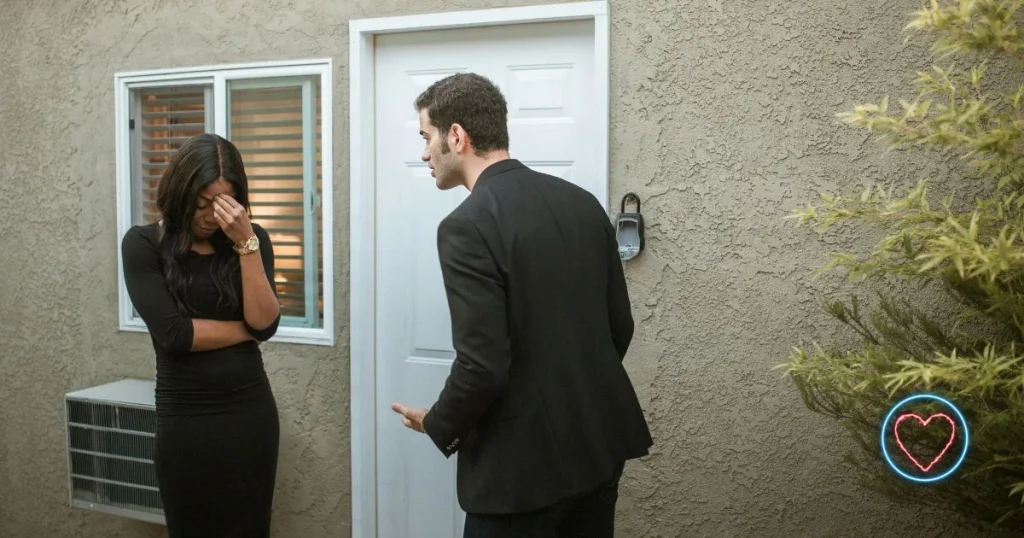Moving in together is a huge milestone in any romantic relationship. It symbolizes a deeper level of commitment, trust, and intimacy. For many couples, cohabitation marks the beginning of a shared life — blending routines, finances, habits, and dreams under one roof. Yet, moving in together too soon, before a solid foundation is built, can lead to unexpected challenges that strain even the strongest bonds.
If you’ve recently started dating or feel pressure to take this step early, it’s important to understand the potential consequences. Rushing into cohabitation without proper preparation or relationship maturity can bring emotional, financial, and practical difficulties. This article dives deep into what happens when you move in together too soon, helping you recognize potential pitfalls and make informed choices about your relationship’s next steps.
The Excitement and Temptation of Moving In Early
The idea of moving in together often feels romantic and exciting — sharing a space means more time, physical closeness, and convenience. Especially in modern dating, where couples spend a lot of time apart juggling busy schedules, moving in can seem like a natural progression. Sometimes financial benefits or logistical reasons (like one partner needing a place to stay) also push the decision forward.
However, this excitement can overshadow critical reflections on whether the relationship is ready for such a big step. When couples move in too soon, they may not fully understand the realities of daily life together, which can create friction, misunderstandings, and emotional strain.
1. You May Overlook Red Flags
When you move in too quickly, you might not have seen your partner in enough varied situations to fully understand their habits, temperament, and values. Early in relationships, people often show their best selves — the honeymoon phase colors perceptions, and important issues can remain hidden.
Living together exposes habits and traits that were previously unseen: how they handle stress, cleanliness, finances, personal boundaries, and communication. If the relationship isn’t mature, these differences can cause frustration and conflict, especially if they were never openly discussed.
2. Increased Conflict and Tension
Co-living multiplies the chances for everyday annoyances to become significant issues. Differences in routines, chores, personal space, and lifestyle become unavoidable realities. When you haven’t built strong communication skills or conflict resolution strategies yet, small problems escalate quickly.
Living together also means there’s less “escape” — you’re constantly in the other person’s presence, which can make tensions feel overwhelming. Without a solid foundation, this pressure cooker effect can lead to frequent arguments and resentment.
3. Blurred Boundaries and Loss of Individuality
Moving in together requires balancing “us” time and “me” time. When rushed, couples often struggle to establish healthy boundaries. You might feel pressure to do everything jointly or lose your independence by merging lives too fast.
Loss of personal space, privacy, or autonomy can lead to feelings of suffocation or resentment. It’s essential to have clear boundaries about alone time, personal interests, and social lives — but these boundaries take time and communication to develop.
4. Financial Strain and Disagreements
Money is a common source of relationship stress. Moving in too soon without clear financial discussions can lead to confusion, disagreements, and imbalance.
Who pays for what? How are bills split? What about saving, debt, or spending habits? If these topics haven’t been addressed beforehand, tensions around finances can sour the relationship quickly. Financial incompatibility is one of the leading causes of breakup among cohabiting couples.
5. You Miss Out on Dating and Getting to Know Each Other
Moving in together too early can short-circuit the natural progression of dating — those early stages where you learn about each other’s quirks, dreams, values, and emotional triggers.
Dating allows couples to grow intimacy gradually and intentionally. Skipping these steps by jumping to cohabitation means you might not have fully explored compatibility in different situations. This lack of depth can become evident over time when the initial excitement fades.
6. You May Feel Trapped or Stuck
Living together creates logistical and emotional entanglement that can be hard to unwind. If the relationship starts to sour or if you realize you’re incompatible, moving out can feel daunting — both emotionally and practically.
You might feel trapped by leases, shared belongings, or the fear of hurting your partner. This “relationship inertia” can keep people stuck in unsatisfying or unhealthy situations longer than they should.
7. Pressure on Relationship Progression
When you move in early, the relationship often accelerates faster than the natural pace. You might feel pressured to talk about marriage, children, or long-term plans before you’re both ready.
This pressure can cause anxiety or create unrealistic expectations that become burdensome. It’s important to grow together at a pace that feels comfortable for both partners.
8. Impact on Mental Health and Emotional Wellbeing
Rapid cohabitation can be stressful and emotionally draining. Adjusting to a new living situation, sharing space, and managing conflicts can increase anxiety, depression, or feelings of isolation if you’re not ready.
The lack of personal downtime or feeling emotionally unsupported can impact your overall mental health. It’s vital to check in with yourself and prioritize self-care during this transition.
9. You May Discover Incompatibility Too Late
Sometimes, moving in too soon delays important realizations about core incompatibilities. Differences in life goals, values, or even day-to-day habits may only become clear when living together full-time.
By this point, emotional investment and shared responsibilities might make it more difficult to separate, prolonging conflict or unhappiness.
10. Social and Family Dynamics Can Become Complicated
When you move in together early, friends and family might react differently depending on how serious the relationship appears. You could face pressure from loved ones who feel the relationship is moving too fast or disapproval if the timing doesn’t align with social or cultural expectations.
This external stress can impact the couple and create additional tension.
11. You Lose Some Sense of Mystery and Romance
Living together means more routine and less of the excitement and anticipation that come with dating. If you move in too soon, you risk losing the magic of discovery and romantic buildup.
While comfort is valuable, balance is key — too much familiarity too quickly can make the relationship feel mundane or predictable, which may dampen passion.
12. You Might Miss Red Flags of Control or Abuse
Unfortunately, moving in too soon can make it harder to recognize or escape unhealthy patterns like emotional manipulation, control, or abuse.
Living together increases interdependence and vulnerability. If you haven’t established strong boundaries or identified warning signs, it may be more difficult to seek help or leave.
How to Avoid Moving In Together Too Soon
Recognizing the risks doesn’t mean you should never move in with your partner — many couples successfully cohabit early and thrive. But awareness and preparation are key.
Here are some ways to avoid rushing in:
- Take Time to Date Fully: Spend quality time learning about each other in different contexts before sharing a home.
- Communicate Openly: Discuss expectations, boundaries, finances, and goals honestly and early.
- Evaluate Your Relationship Health: Consider how you handle conflict, trust, and emotional support.
- Set a Timeline: Agree on a timeline that feels right for both without external pressure.
- Maintain Independence: Keep your hobbies, friendships, and personal space intact.
- Trust Your Intuition: If something feels off, pause and reflect before making big decisions.
- Seek Guidance: Consider premarital or couples counseling to navigate this transition thoughtfully.
What to Do If You’ve Already Moved In Too Soon
If you’ve already moved in together quickly and are facing challenges, you’re not alone. Many couples experience bumps in the road but grow stronger by addressing issues honestly.
Here’s what you can do:
- Talk About Your Feelings: Share your concerns with your partner in a non-accusatory way.
- Create Boundaries: Set clear expectations about chores, finances, and alone time.
- Seek Outside Support: Couples therapy or trusted mentors can help mediate.
- Prioritize Self-Care: Make time for your interests and mental wellbeing.
- Evaluate Compatibility: Honestly assess if the relationship meets your needs long-term.
- Consider Space: Sometimes spending time apart or living separately temporarily can help regain perspective.
Conclusion: Moving In Together Is a Big Step—Don’t Rush It
Moving in together is an exciting chapter, but moving in too soon can bring unexpected challenges. From increased conflict and blurred boundaries to financial strain and emotional exhaustion, rushing cohabitation often magnifies problems that would have been easier to manage with more time and preparation.
Healthy relationships grow from a strong foundation of trust, communication, and mutual respect. Taking the time to truly know your partner and discuss expectations can prevent many pitfalls associated with moving in too early.
Remember, there’s no “right” timeline for living together. Every couple’s journey is unique. The most important thing is to make decisions that prioritize emotional wellbeing, respect, and long-term happiness.
If you’re feeling unsure about moving in together or facing difficulties after doing so, don’t hesitate to seek advice or support. Your relationship deserves care, attention, and patience to thrive.




















